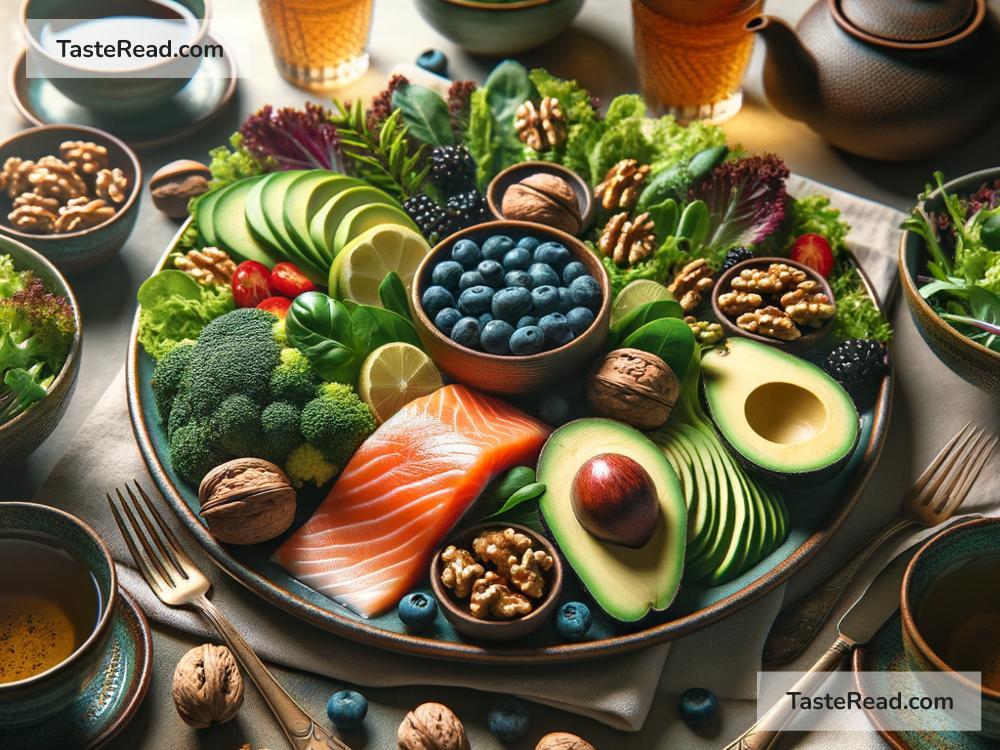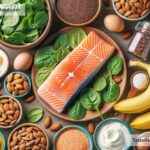Eating for Better Communication: Foods That Can Help Reduce Miscommunication
Communication is the foundation of human interaction. It’s how we connect, express ourselves, and resolve conflicts. But let’s be honest: miscommunication happens to everyone. Sometimes it’s a misunderstanding of words, a lack of clarity, or even misinterpreting someone’s tone or body language. Surprisingly, your diet could play a role in helping reduce miscommunication by enhancing your brain function, focus, and emotional balance—all key components for effective communication.
What you eat fuels your brain and body. By choosing foods that boost cognitive function, promote emotional stability, and improve your overall mental clarity, you can better listen, process, and respond during conversations. Let’s explore some foods that can help enhance communication skills by making sure your mind and body are working at their best.
Brain Boosting Foods for Clear Thinking
Effective communication starts with a sharp mind. When your brain is foggy or tired, you’re more likely to misunderstand or mishear others. Eating certain foods can improve brain function, allowing you to stay alert and focused on what someone is saying.
-
Blueberries
Blueberries are full of antioxidants that protect the brain from oxidative stress. They also improve memory and learning abilities. Eating blueberries regularly can help you stay mentally sharp, making it easier to process information during conversations. -
Fatty Fish
Fish like salmon, mackerel, and sardines are rich in omega-3 fatty acids, which support brain health. Omega-3s enhance memory, focus, and mental clarity—essential for understanding and interpreting what others are saying. -
Nuts and Seeds
Almonds, walnuts, chia seeds, and flaxseeds contain healthy fats and vitamins, such as vitamin E, which help protect your brain and boost cognitive functions. These are great snacks to keep your mind alert throughout the day.
Mood Stabilizing Foods for Emotional Balance
Emotions play a big role in communication. When we’re stressed, anxious, or irritable, we may overreact, interrupt, or misunderstand someone’s words. Foods that regulate your mood can help you stay emotionally balanced during conversations.
-
Dark Chocolate
A little bit of dark chocolate can go a long way in lifting your mood. It contains compounds that help release endorphins—the feel-good chemicals in your brain. Just be mindful not to overeat. -
Bananas
Bananas contain vitamin B6, which helps the body create serotonin (a mood stabilizer). Feeling calm and happy when talking to someone makes it easier to stay open and empathetic, reducing the risk of miscommunication. -
Whole Grains
Whole grains like brown rice, oats, and quinoa support consistent energy levels and better mood regulation. They’re also rich in magnesium, which helps combat stress and anxiety.
Foods for Increased Energy and Focus
Feeling tired during a conversation can make you zone out or miss key details. Eating foods that keep your energy levels steady can ensure that you’re fully present and focused when speaking or listening.
-
Avocados
Avocados are packed with healthy fats, vitamins, and minerals that provide steady energy throughout the day. They support brain power and focus, making them great for staying engaged during long conversations. -
Leafy Greens
Spinach, kale, and other leafy greens are full of nutrients like iron and folate, which fight fatigue and boost brain performance. Adding greens to your meals can energize you for important discussions. -
Eggs
Eggs contain choline, a nutrient that supports memory and attention. Start your day with eggs, and you’ll find it easier to stay sharp during conversations.
Hydration for Clear Expression
Did you know dehydration can lead to brain fog and irritability? Staying hydrated is just as important as eating the right foods for good communication.
-
Water
Water is your best friend for staying hydrated. Make sure you drink plenty throughout the day to maintain mental clarity. -
Herbal Tea
Herbal teas like chamomile or green tea can help calm your nerves and keep your throat clear, making it easier to speak clearly and confidently.
Foods to Avoid
While some foods can help improve communication, others may have the opposite effect. Here are a few foods to use sparingly:
-
Sugary Treats
High-sugar snacks can cause energy spikes and crashes, making you feel jittery one moment and tired the next. -
Processed Foods
Foods with low nutritional value, like chips and fast food, contribute to brain fog and lack of focus. -
Caffeine Overload
While a little caffeine can boost alertness, too much can make you anxious or overly reactive—both of which can lead to poor communication.
Conclusion
Improving communication isn’t just about learning to listen better or choosing the right words—it’s also about taking care of your brain and body. By eating foods that enhance mental clarity, keep your emotions balanced, and give you steady energy, you’ll be better equipped to avoid miscommunication and build stronger connections with others.
Remember, the next time you sit down for a conversation, you’re not just relying on what you say—it’s also about what you eat. Small changes in your diet might help you communicate with ease and understanding, creating a more positive and fruitful exchange with the people around you. So go ahead, grab some blueberries or a handful of almonds before your next chat—you’ll thank yourself later!


